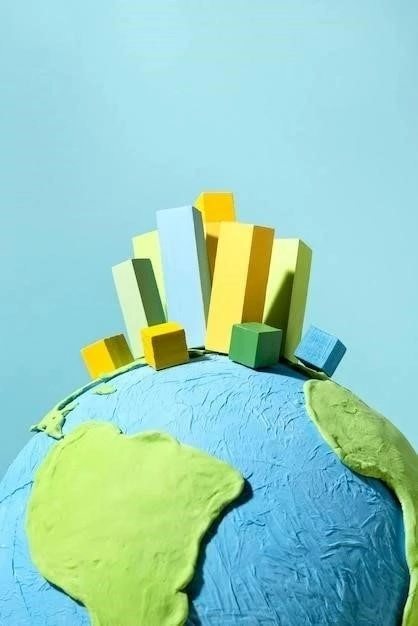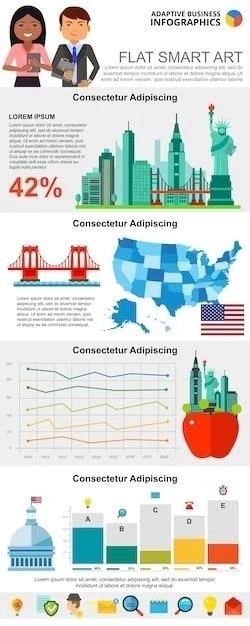The Role of Think Tanks in Shaping U.S. Foreign Policy

Think tanks play a crucial role in shaping U.S. foreign policy by bridging the gap between academia and policymaking. They provide expert analysis, generate innovative policy recommendations, and foster informed dialogue on critical global issues. Through their research, publications, and engagement with policymakers, think tanks contribute significantly to the development and implementation of U.S. foreign policy strategies.

The Global Landscape in 2050: Key Trends and Challenges
Projecting the global landscape in 2050 requires navigating a complex web of emerging trends and potential disruptions. While predicting the future with certainty remains impossible, several key trends are likely to shape the world of 2050, presenting both opportunities and challenges for the United States:
Shifting Power Dynamics:
The rise of emerging powers, particularly China and India, will continue to reshape the geopolitical landscape. This multipolar world will challenge the traditional dominance of the United States, requiring a recalibration of alliances and approaches to global governance. Competition for resources, influence, and technological supremacy will intensify, demanding adept diplomacy and strategic foresight from the U.S.
Demographic Transformations:
Significant demographic shifts will reshape societies and economies worldwide. Population growth in Africa and parts of Asia will contrast with aging populations in Europe and North America. This will have profound implications for labor markets, social welfare systems, and global migration patterns, requiring the U.S. to adapt its domestic and foreign policies accordingly.
Climate Change and Resource Scarcity:
The escalating impacts of climate change, including more frequent extreme weather events, rising sea levels, and resource scarcity, will pose significant challenges to global stability. Competition for water, food, and energy resources could exacerbate existing tensions and potentially lead to new conflicts. The U.S. will need to prioritize sustainable development, invest in climate resilience, and lead international efforts to mitigate climate change’s worst effects.
Technological Advancements:
Rapid technological advancements, particularly in artificial intelligence, biotechnology, and cyber capabilities, will bring both opportunities and risks. While these advancements hold the potential for economic growth and societal progress, they also present challenges related to cybersecurity, job displacement, and ethical considerations. The U.S. must foster innovation while mitigating potential risks and ensuring equitable access to the benefits of technological progress.
Global Governance Challenges:
The existing system of global governance will face increasing strain in a more multipolar and interconnected world. Addressing transnational challenges such as climate change, pandemics, and cybersecurity will require strengthened international cooperation and innovative approaches to global governance. The U.S. will need to navigate this complex landscape strategically, engaging with both traditional allies and emerging powers to shape a more effective and equitable global order.

U.S. Foreign Policy Priorities in a Multipolar World
In a multipolar world order projected for 2050, the United States will need to adapt its foreign policy priorities to navigate a more complex and competitive geopolitical landscape. Balancing traditional alliances with strategic engagement with rising powers will be crucial, while prioritizing diplomacy, economic engagement, and global leadership in key areas:
Strategic Competition and Cooperation:
The U.S. will need to manage strategic competition with China and other rising powers, seeking areas of cooperation on shared global challenges like climate change and pandemics, while safeguarding its interests and values. This requires a nuanced approach, combining diplomacy, economic engagement, and military deterrence to maintain a stable and prosperous international order.
Strengthening Alliances and Partnerships:
Reinforcing existing alliances and building new partnerships will be essential for U.S. foreign policy success. Deepening cooperation with democratic allies in Europe and Asia will be crucial, alongside strengthening ties with key regional partners in Africa, Latin America, and the Indo-Pacific to counterbalance the influence of rival powers and advance shared interests.
Global Leadership on Transnational Challenges:
Addressing transnational challenges such as climate change, pandemics, terrorism, and cybersecurity will require strong U.S. leadership. The U.S. must work collaboratively with international partners to develop innovative solutions, strengthen global institutions, and promote collective action to mitigate these threats and promote global stability and prosperity.
Economic Statecraft and Technological Competitiveness:
Economic statecraft and maintaining technological competitiveness will be critical tools of U.S. foreign policy. Promoting free trade, supporting developing economies, and fostering innovation will be essential for U.S. economic and geopolitical influence. Investing in research and development, workforce training, and strategic infrastructure projects will be vital to maintain its competitive edge.
Promoting Democratic Values and Human Rights:

Upholding democratic values and human rights will remain a cornerstone of U.S. foreign policy. Promoting democracy, supporting human rights defenders, and advocating for good governance globally will be crucial for advancing U.S. interests and building a more just and equitable world order. This requires a multifaceted approach, including diplomacy, development assistance, and public diplomacy initiatives.

The Future of U.S. Global Leadership
The nature of U.S. global leadership will undergo significant transformation by 2050, necessitating a shift from a predominantly unilateral approach to one rooted in multilateralism, strategic partnerships, and a recognition of the diffuse nature of power in a multipolar world. The U.S. will need to adapt to maintain its global standing and effectively address the complex challenges of the 21st century.
Embracing Multilateralism and Strategic Partnerships:
Recognizing the limits of unilateral action, the U.S. must prioritize multilateralism and cultivate robust partnerships with both traditional allies and emerging powers. Strengthening existing alliances, such as NATO and partnerships in the Indo-Pacific, while fostering new cooperative frameworks, will be crucial for tackling shared challenges and maintaining global stability.

Leading on Global Public Goods:
The U.S. can solidify its leadership by actively addressing global public goods challenges. Taking the helm in combating climate change, preventing pandemics, ensuring cybersecurity, and promoting sustainable development will be crucial for demonstrating global responsibility and rallying international support.
Investing in Soft Power and Diplomacy:
While maintaining a robust military remains important, the U.S. must prioritize soft power and diplomacy as essential tools of its global leadership. Investing in public diplomacy, development assistance, cultural exchange programs, and scientific collaborations will be vital for building trust, fostering goodwill, and shaping a more positive global image.
Promoting Inclusive Economic Growth and Development:
Championing inclusive economic growth and sustainable development will be crucial for U.S. leadership in a rapidly changing world. Supporting developing countries, promoting fair trade practices, and fostering innovation will not only advance global prosperity but also demonstrate the benefits of a U.S.-led international order.

Adapting to a World of Shared Power:
Critically, the U.S. must adapt to a world defined by shared power. Embracing a more collaborative approach, recognizing the perspectives and interests of other nations, and building consensus through diplomacy and compromise will be essential for effective global leadership in the multipolar world of 2050.










